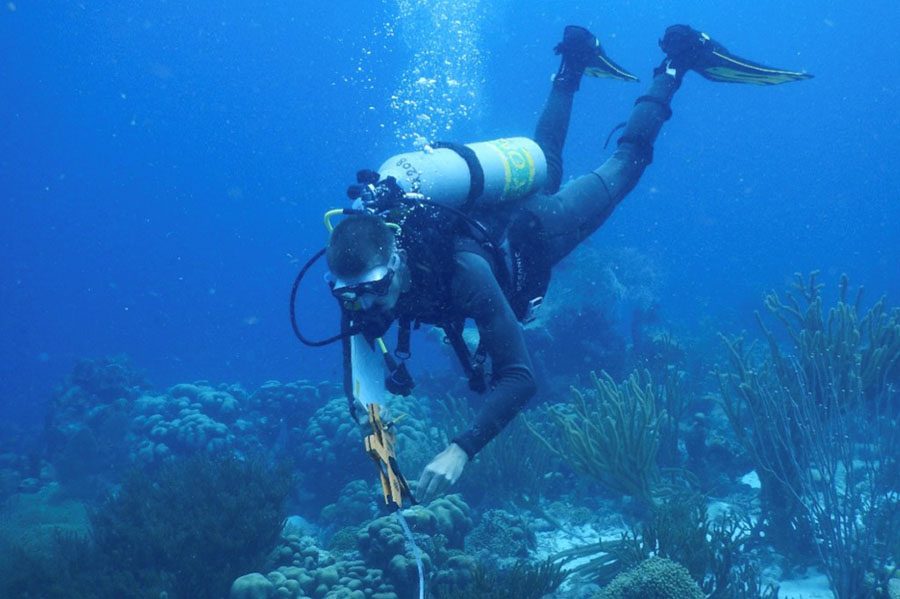
In response to local and global climate stressors, a type of bright red bacteria has proliferated on reefs worldwide often snuffing the life out of precious corals and changing the reef ecosystem.
To learn more about this process and what might be used to control it, Florida State University researchers conducted extensive research on Caribbean reefs. They found a relatively straightforward answer to the control question — fish.
In a new paper in Scientific Reports, FSU researchers report that several types of fish are feeding on these mats or clusters of bacteria despite conventional wisdom that fish were uninterested in these mats as a food source.
“This has never been documented in this system,” said FSU doctoral student Ethan Cissell. “It reinforces that a healthy fish assemblage on the reef is important for the overall health of the reef.”
Coral reef bacteria have always played an important role in these communities. In the past, they covered about .01 percent of reefs, but that has grown to 20 to 30 percent in some places.
“At their regular level, they play an important role in producing nitrogen,” Cissell said. “When they increase, the biogeochemistry gets out of whack, and it can suffocate the coral.”
Cissell and his colleagues conducted 29 diving expeditions in Bonaire, an island municipality of the Netherlands that lies off the coast of Venezuela. Through these dives, they observed six types of fish feeding on these bacterial mats.
The French Angelfish and the Striped Parrotfish were particularly aggressive foragers.
“They go crazy, especially the French Angelfish,” Cissell said. “They’d be repeatedly eating these mats.”
The larger picture is much more complex than whether fish are simply eating these mats. Cissell and his colleagues are interested in whether this herbivorous pressure can serve as a control mechanism for the explosive growth of bacterial mats or in some way influence the growth.
“Bacteria on reefs and in the water column are getting more and more prolific with changing ocean conditions, and it has been thought that fish played either no role at all or only a very minor role in being able to control them,” said Assistant Professor of Biological Science Sophie McCoy, who is Cissell’s adviser. “We hope that this work will motivate researchers to look into potential control of bacterial mats by fish, and also to explore whether this is a new, learned behavior due to the increased abundance of mats, or whether it has simply become more noticeable now that mats are more abundant.”
McCoy is one of Cissell’s co-authors along with graduate student Joshua Manning.
This research was supported by the FSU Coastal and Marine Laboratory’s Academic Diving Program and conducted with the permission of The Bonaire National Parks Foundation.



